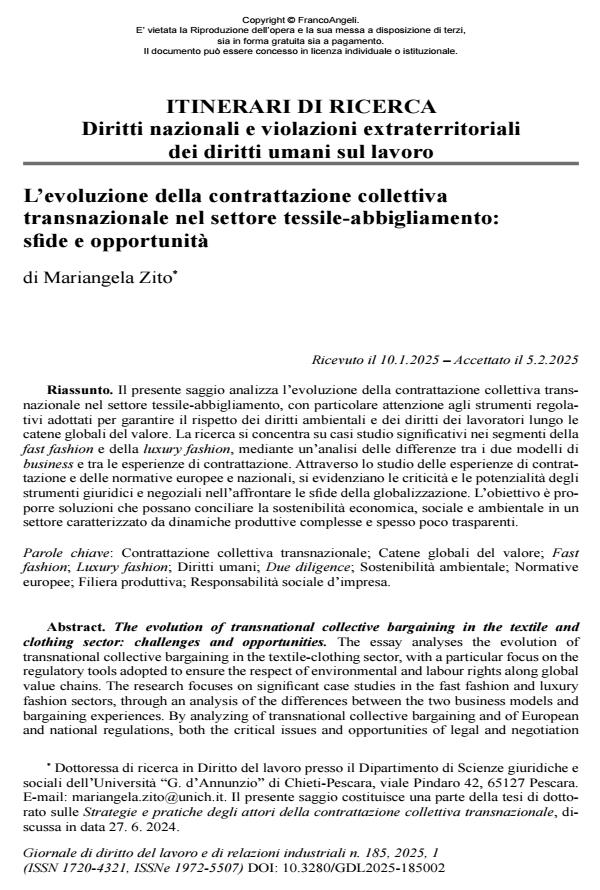L’evoluzione della contrattazione collettiva transnazionale nel settore tessile-abbigliamento: sfide e opportunità
Journal title GIORNALE DI DIRITTO DEL LAVORO E DI RELAZIONI INDUSTRIALI
Author/s Mariangela Zito
Publishing Year 2025 Issue 2025/185
Language Italian Pages 28 P. 15-42 File size 250 KB
DOI 10.3280/GDL2025-185002
DOI is like a bar code for intellectual property: to have more infomation
click here
Below, you can see the article first page
If you want to buy this article in PDF format, you can do it, following the instructions to buy download credits

FrancoAngeli is member of Publishers International Linking Association, Inc (PILA), a not-for-profit association which run the CrossRef service enabling links to and from online scholarly content.
The essay analyses the evolution of transnational collective bargaining in the textile-clothing sector, with a particular focus on the regulatory tools adopted to ensure the respect of environmental and labour rights along global value chains. The research focuses on significant case studies in the fast fashion and luxury fashion sectors, through an analysis of the differences between the two business models and bargaining experiences. By analyzing of transnational collective bargaining and of European and national regulations, both the critical issues and opportunities of legal and negotiation instruments in facing the challenges of globalisation are highlighted. The aim is to propose solutions that can reconcile economic, social and environmental sustainability in a sector characterised by complex and often opaque production dynamics.
Keywords: Transnational collective bargaining; Global value chains; Fast fashion; Luxury fashion; Human rights; Due diligence; Environmental sustainability; European regulations; Production chain; Corporate social responsibility.
Mariangela Zito, L’evoluzione della contrattazione collettiva transnazionale nel settore tessile-abbigliamento: sfide e opportunità in "GIORNALE DI DIRITTO DEL LAVORO E DI RELAZIONI INDUSTRIALI " 185/2025, pp 15-42, DOI: 10.3280/GDL2025-185002